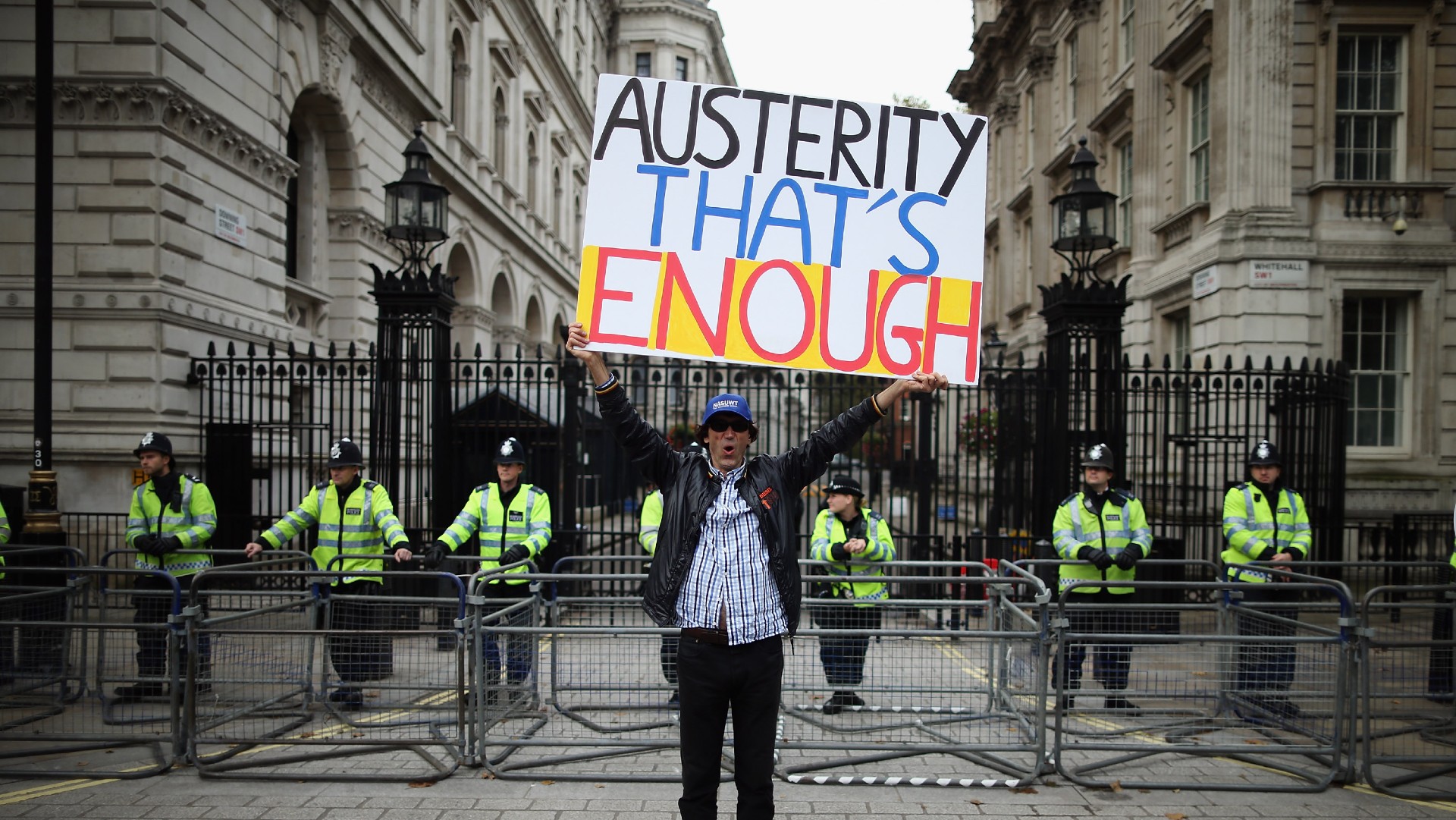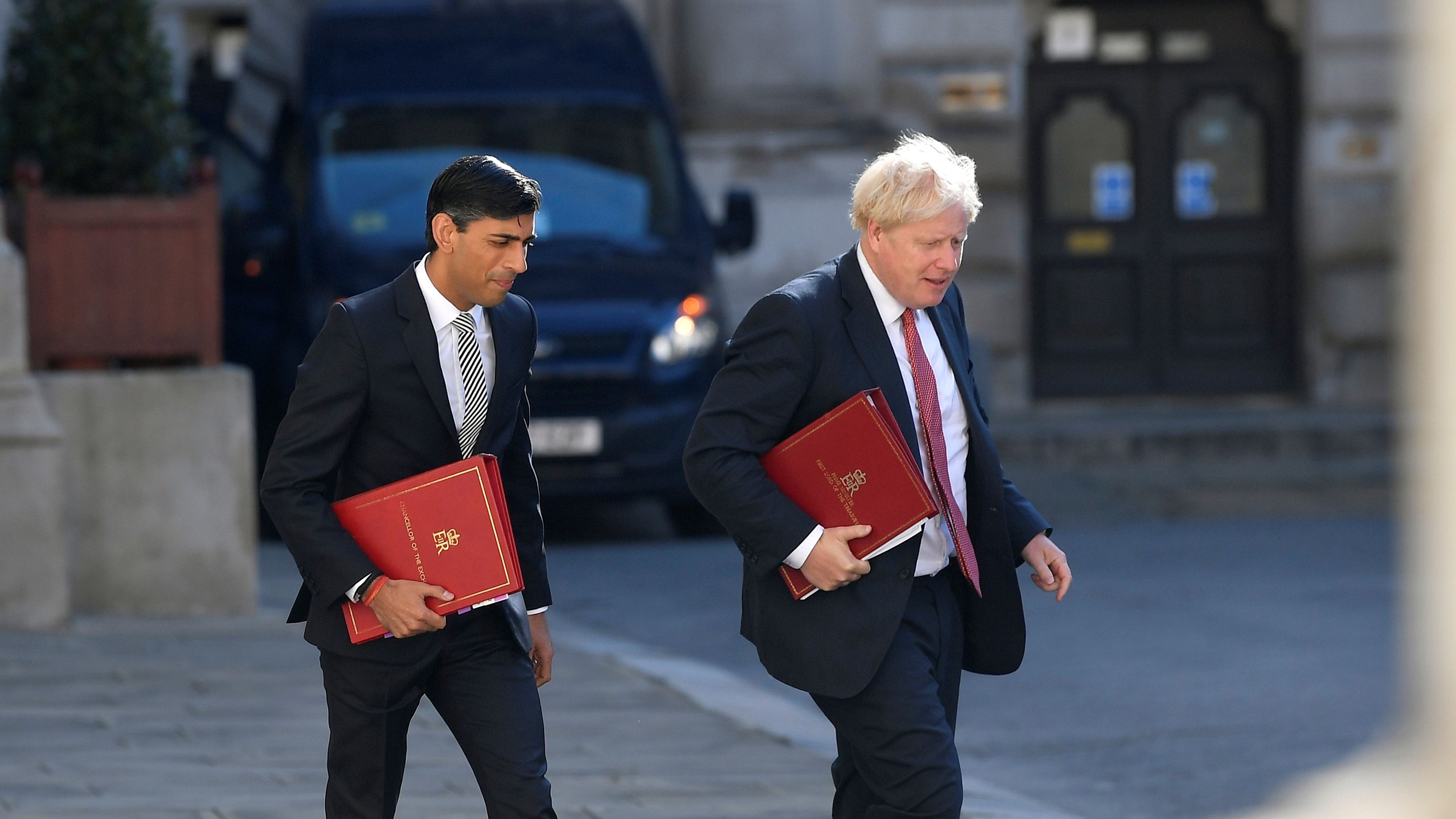Budget caveat: sting in the tail for savers and pensioners
People will need to be much more financially literate or there'll be a new pensions crisis, says Iain Clacher

A free daily email with the biggest news stories of the day – and the best features from TheWeek.com
You are now subscribed
Your newsletter sign-up was successful
THE CHANCELLOR of the Exchequer, George Osborne, “pulled a rabbit out of the hat” for pensioners and savers with changes to UK pensions that have been hailed as the most significant overhaul to the system since 1921. Simply put, the Chancellor is trying to give the 13m people who find themselves in defined contribution schemes more choice in how they invest their money in retirement.
After the budget announcement, those retiring in a defined contribution scheme will no longer be forced to buy an annuity to guarantee them an income over their retired life. As well as this, the 55% rate of tax charged on lump sum withdrawals over 25 per cent of the value of the pension pot will be abolished, and any withdrawal above the 25% threshold, will now be taxed at the marginal rate. Are these sweeping changes? The answer is yes. Whether they are good is another issue.
A new annuity regime
The Week
Escape your echo chamber. Get the facts behind the news, plus analysis from multiple perspectives.

Sign up for The Week's Free Newsletters
From our morning news briefing to a weekly Good News Newsletter, get the best of The Week delivered directly to your inbox.
From our morning news briefing to a weekly Good News Newsletter, get the best of The Week delivered directly to your inbox.
Choice is always seen as good. Current annuity rates mean that for £100,000 you will get circa £4,500 for every year that you live, so if you live for three years in retirement you lose out, but if you live for 35 years, you gain. Moreover, if you were to take £4,500 from the pot each year as income, ignoring any sort of interest or investment returns, it would last just over 22 years. Current annuity rates are clearly not attractive for pensioners, and prior to the Budget, pensioners were locked into these rates by law.
Individuals now have the choice of how to invest and structure their retirement. However, if individuals get these calculations wrong, and say take £10,000 a year as they expect to live for a decade in retirement – if they live for 20 years, they have a serious problem. The pot will be empty.
One advantage of pension vehicles, such as annuities, is the money is locked away. Ease of access is a problem, as a rainy day is always lurking around the corner. The money in many instances will be whittled away because of normal things that happen over the course of ones life. Broken washing machines, expensive MOTs and so on will naturally erode the pot. This security has now been removed.
A new crisis lurks
A free daily email with the biggest news stories of the day – and the best features from TheWeek.com
Other changes for savers such as the increase in the ISA threshold are clearly good news for savers. Individuals can now save up to £15,000 per annum, whether it is in cash or in shares. However, for most people, cash is the common savings vehicle as it gives them liquidity against life events. Where cash is the investment of choice, the problem remains despite today’s announcement; that the rates of interest on deposits in the current climate are negligible. In real terms, saving cash in an ISA has eroded the value of the money since 2008 as they generally pay interest of one per cent and inflation has been around three per cent.
So the question is: has George Osborne really “pulled a rabbit from the hat”? The short answer is yes from a political momentum point of view. He has clearly set himself on the side of savers and pensioners and his comment of “you’ve earned it, you’ve saved it. This government is on your side”, will definitely ring true with many people who have been affected badly since 2008; or who are staring at pitiful annuity rates as they look to retire in the coming 5-10 years. For savers, the changes to the ISAs look good, but until banks start providing them with decent interest rates on deposits, there will be no tangible benefit to increased levels of tax-free savings.
More worrying is what happens to those individuals who can now make choices about how to spend their pension pots. Choice may be a good thing in theory, but those about to retire will need to be much more financially literate to understand the decisions that they are making. As well as this, they will need to be given good advice from the finance industry and not just sold another product. Otherwise, there could be another pensions crisis on the horizon.
Iain Clacher is Associate Professor in Accounting and Finance at the University of Leeds.This article was originally published on The Conversation
-
 The EU’s war on fast fashion
The EU’s war on fast fashionIn the Spotlight Bloc launches investigation into Shein over sale of weapons and ‘childlike’ sex dolls, alongside efforts to tax e-commerce giants and combat textile waste
-
 How to Get to Heaven from Belfast: a ‘highly entertaining ride’
How to Get to Heaven from Belfast: a ‘highly entertaining ride’The Week Recommends Mystery-comedy from the creator of Derry Girls should be ‘your new binge-watch’
-
 The 8 best TV shows of the 1960s
The 8 best TV shows of the 1960sThe standout shows of this decade take viewers from outer space to the Wild West
-
 Can Nigel Farage and Reform balance the books?
Can Nigel Farage and Reform balance the books?Today's Big Question Nigel Farage has, for the first time, ‘articulated something resembling a fiscal rule’ that he hopes will win over voters and the markets
-
 How could stock market slides affect you?
How could stock market slides affect you?Today's Big Question Pensions, prices and jobs at risk as Donald Trump's 'Liberation Day' measures take hold
-
 Will Keir Starmer scrap the two-child benefit cap?
Will Keir Starmer scrap the two-child benefit cap?Today's Big Question PM signals 'change in tone' as Labour rebels prepare to back amendment calling for immediate end to controversial 'social cleansing' policy
-
 Withdrawing benefits: 'war on work shy' or 'matter of fairness'?
Withdrawing benefits: 'war on work shy' or 'matter of fairness'?Talking Point Jeremy Hunt to boost minimum wage while cracking down on claimants who refuse to look for work
-
 The Great Unretirement: necessary evil or new normal?
The Great Unretirement: necessary evil or new normal?Talking Point ONS data shows that more than 100,000 people aged 50-64 have returned to work in past year
-
 Liability driven investment and its terrifying potential impact on our pensions
Liability driven investment and its terrifying potential impact on our pensionsfeature How did a niche corner of the pension market threaten to bankrupt Britain?
-
 Do Tory tax cuts herald return of austerity?
Do Tory tax cuts herald return of austerity?Today's Big Question Chancellor U-turns on scrapping top rate tax but urges ministers to make public spending cuts
-
 Rishi Sunak warned against ‘historic tax grab’ - so how can he foot the coronavirus bill?
Rishi Sunak warned against ‘historic tax grab’ - so how can he foot the coronavirus bill?In Depth Conservative MPs claim planned hikes will ‘strangle’ economy as debt rockets
